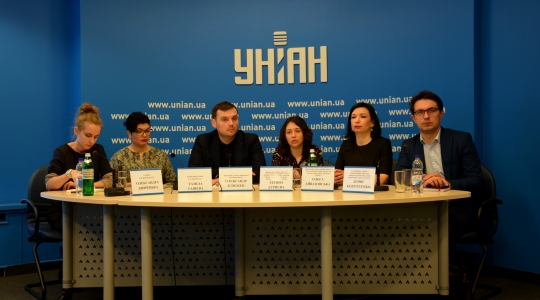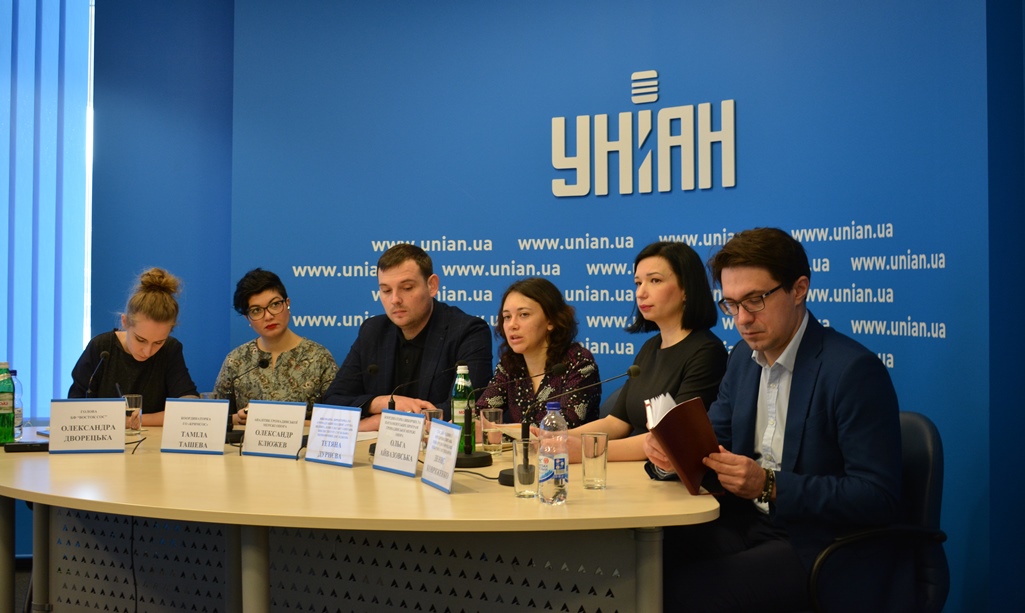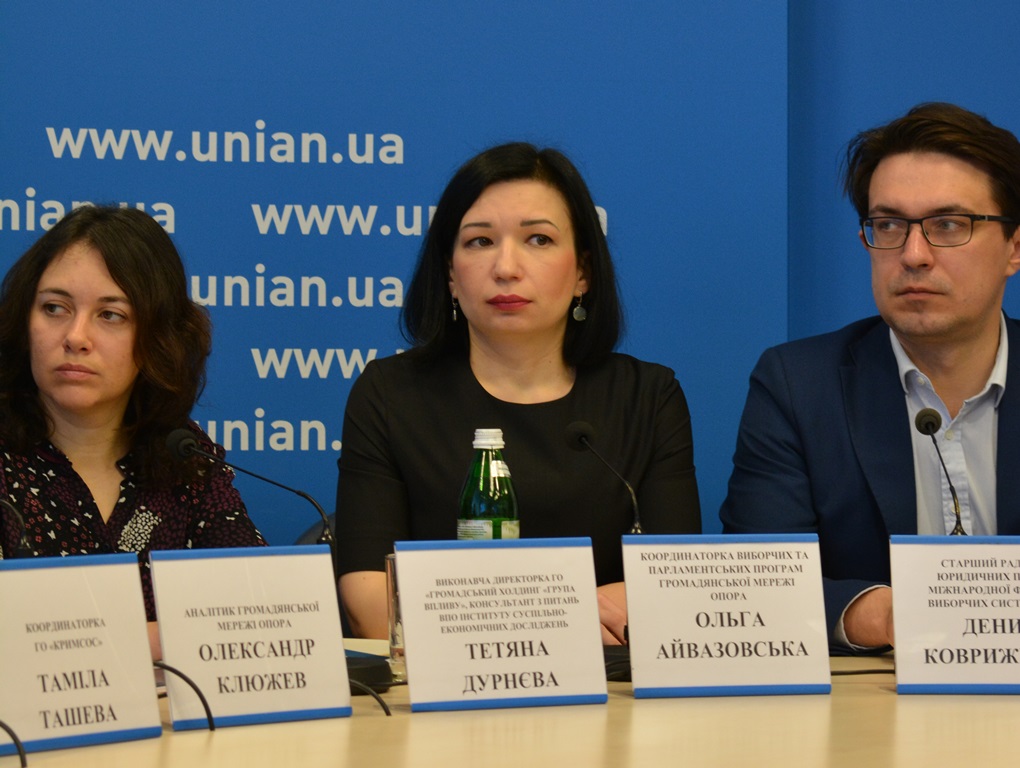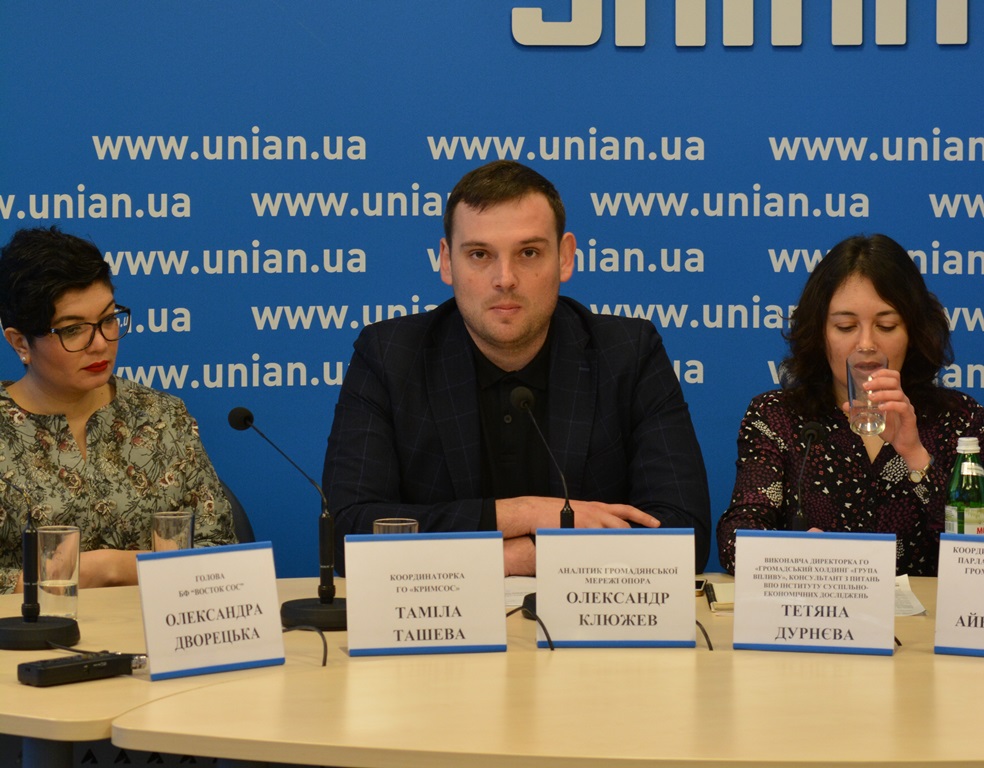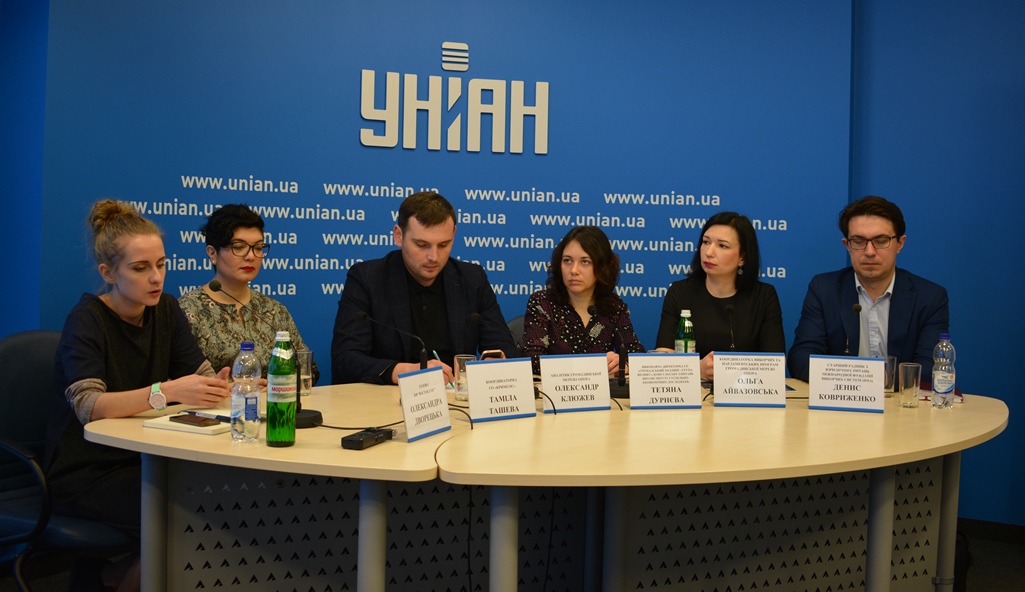According to the Executive Director of Hrupa Vplyvu Civil Holding Tetiana Durnieva, there are many reasons why internally displaced persons cannot change their registration address in passport to gain political rights at a place of residence. “We have researched the issue in focus groups in 10 regions of Ukraine and ascertained that besides impossibility to register in their new communities, IDPs also choose not to change registration address fearing to lose property on occupied territories, to hazard themselves on boundary line, or just want to keep the bonding with their former home.”
Taking into consideration the need to eliminate obstacles hindering internally displaced persons to vote at the place of residence, the experts of leading NGOs suggested MPs of Ukraine to amend the Law of Ukraine on Local Elections, Law of Ukraine on the State Register of Voters, and on the Rights and Freedoms of Internally Displaced Persons, aiming to improve the procedure of establishing the voting address.
Parliamentary and Electoral Programs Coordinator at Civil Network OPORA Olha Aivazovska has emphasized that the issue of voting rights is extremely politicized. “Civil society has prepared a new text of the draft law, which concerns electoral rights of internally displaced persons and migrant workers. A year and a half ago, legislative and executive branches were both convinced that internally displaced persons shouldn't have the right to vote in local elections, because, allegedly, they can hazard election outcomes. Today, we must avoid panic and hate speeches, which were especially aggressive in the course of 2015 local election campaign. The clashes around electoral process have ceased, and both politicians and state authorities started thinking on the solution of the problem. I strongly believe that internally displaced persons are the valuable asset in conciliation and reintegration when we will start overcoming the impact of armed conflict after the active hostilities are over. Therefore, the government and civil society cannot ignore the fact that our fellow citizens, who use services and resources provided by local self-government bodies, are deprived of the right to vote in local elections. It's definitely a problem that local self-government in Ukraine is even more politicized than parliamentary or presidential elections,” – she added.
According to the Analyst of the Civil Network OPORA Oleksandr Kliuzhev, the voting address should be changed based on a personal application of a voter. “It should be mentioned that Ukraine has a significant advantage in contrast to many other countries which faced internal displacement of citizens. This advantage is a perfectly functioning State Register of Voters. Voter lists are maintained on a high level of quality. Therefore, we suggest to solve this problem by amendment of the Law on the State Register of Voters. According to the current wording of the Law on the State Register of Voters, a voter has an election address, and this address is a basis for his/her inclusion in voter lists at an election precinct. Thus, we suggested in the amendment that a voter, who cannot change the election address, could apply to the State Register of Voters asking to change it. We provide some grounds for change of the election address. Registration of a voter as an internally displaced person is one of such grounds. We have selected the following grounds:
– rental agreement for a housing at an address, which is indicated by a voter as a desirable voting address;
– a voter owns housing within an administrative-territorial unit of a new voting address;
– a voter can change his/her voting address to the registration address of his/her spouse or a person he/she is taking care of on a permanent basis.
Any amendment may bring risks, and we must mention this. Our task, on one hand, to prevent these risks by the legislation and, on the other hand, to motivate law enforcement bodies to prevent any misuses of voter lists,” – the expert added.
Denys Kovryzhenko, Senior Legal Advisor at the International Foundation for Electoral Systems (IFES), said: “If we simplify the procedure for changing the election address, we will ensure realization of the universal and equal suffrage principle. Besides that, it will ensure proper realization of IDPs' rights to participate in public affairs, guaranteed by international standards.”
Crimea SOS NGO Coordinator Tamila Tasheva believes that political right of IDPs mean democratic procedures for the most part. “Ensuring political, particularly electoral rights for internally displaced persons and citizens who work and live outside their registration address, is an important sign of a democratic society. The government should develop a unified stand, listen to the citizens, to recommendations of international organizations and organizations protecting human rights, and do everything to adopt the necessary amendments.”
Head of the Vostok SOS charitable foundation Oleksandra Dvoretska has mentioned that demands of IDPs, who ask for help at public receptions, have changed. “Our clients often complain that they feel outsiders and unwanted during local elections. We must understand that it is not enough just to wait until the shooting stops at home for the people, who have moved from Donbas and Crimea. Integration of these new members of local communities means not only paying taxes at their new homes, but also controlling how they are used, including through election of local government bodies. The state should demonstrate that it trusts them, and that their choice of Ukraine was right,” – she emphasized.
In addition to the development of legislation, non-governmental organizations conduct events and develop coalition in the regions. Thus, Executive Director of the Hrupa Vplyvu Civil Holding Tetiana Durnieva showed pictures from different regions with civic activists organized flash mobs in support of political rights. Thus, activists from Zaporizhia, Berdiansk, Vinnytsia, Kharkiv, Dnipro, Lviv, Odesa, Druzhkivtsi and Chernivtsi organize flash mobs and staged events called to draw attention to the protection of IDPs' political rights, who comprise 4% of Ukrainian voters. Participants of a staged event make “live map” of Ukraine, and sing to show that IDPs cannot sing together with all Ukraine. Civic activists demonstrate that each voice has the influence and we can solve this problem only if united.
We would like to remind that 4% of Ukrainian voters, who had to leave their homes because of military aggression, are not able to exercise one of the basic constitutional rights because national legislation is not adapted. Thus, according to the Ministry of Social Policy, there are 1,622,835 IDPs in Ukraine as of March 2017. The absence of a mechanism ensuring the exercise of voting right at the place of residence also concerns so-called labor groups and other mobile groups of citizens.
For more information, please contact:
- Civil Network OPORA [email protected]
- Hrupa Vplyvu Civil Holding [email protected]
